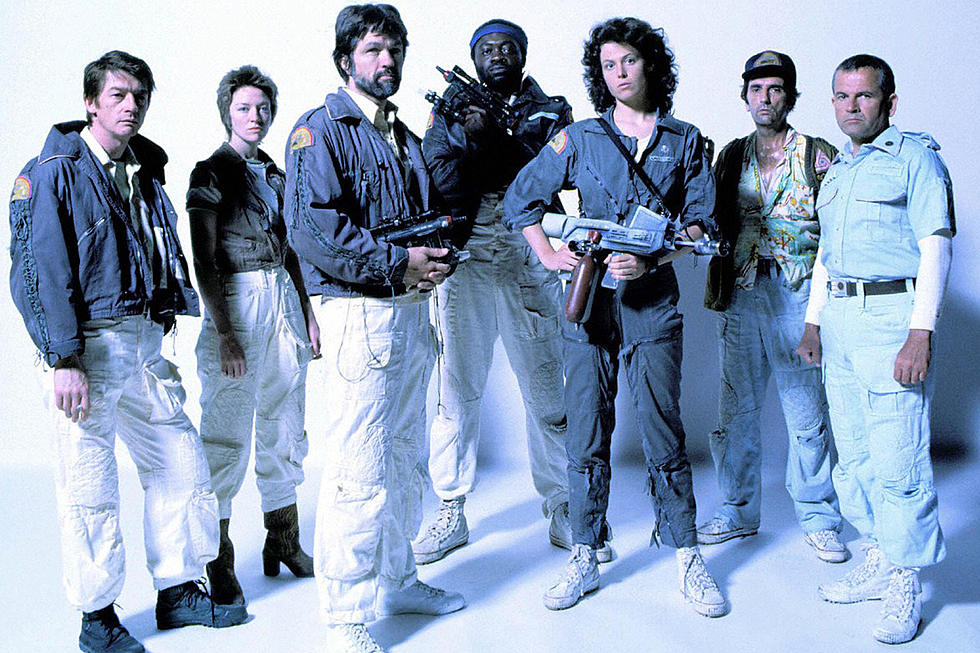Twin Peaks: Why LGBTQ Ally Depiction is Crucial
Portraying how easy it is to be an ally heavily benefits the majority audience. The more we encourage it, normalize it, and give people the tools to become one, the sooner we can co-exist peacefully.


Imagine the ideal hiring process for the perfect world. You test all applicants and hire whoever is best for the role. It’s a win for the candidate and a win for the hiring manager (after all, they get the most talented person for the job).
In this scenario, film writers would design characters with depths, problems, and skills, and then whichever actor portrayed them perfectly would get the role.
Plot twist: this isn’t an imaginary world. This process is called unbiased casting and it happened 43 years ago with a little-known film called Alien.
Yes. That Alien.
43 years ago and somehow this method isn’t common practice yet. Or really done at all.
Are you eager for some details? Because I’m eager to give them.
Alien (1979) is a sci-fi horror film directed by Ridley Scott, starring Sigourney Weaver, Tom Skerritt, John Hurt, Ian Holm, Yaphet Kotto, Veronica Cartwright, and Harry Dean Stanton.
It takes heavy inspiration from the works of H.R. Giger and has played a huge role in pop culture since its release, whether it be an homage, a parody, or a spin-off (a lot of spin-offs).
The original story was written by Dan O’Bannon who had a passion for science fiction and horror and wanted to create a realistic, scary sci-fi film, unlike his previous lower-budget film, Dark Star (1974).
That’s a painted beach ball with rubber claws if you can’t tell.
Being a fan of O’Bannon’s work, Ronald Schusett soon contacted him and began collaboration on what would become Alien.
The two grew very close and it soon became a pet project for both of them.

O’Bannon and Shusett wanted more than anything to focus on creating a stellar alien. All attention on the monster – no distractions. So they wrote seven human roles, intentionally generic.
They made a note in the script that explicitly stated: “The crew is unisex and all parts are interchangeable for men or women.”
Every character was written with only a surname – notice how she isn’t Ellen Ripley until the sequel.
After casting, they ended up with two women and one Black man out of the seven human characters.

The Black man, the absolute legend Yaphet Kotto, said that Alien was one of the best projects he worked on and showed more forward-thinking equality than his other jobs. He once said that as he watched Martin Luther King Jr.’s famous speech in 1963 that he wondered if he would ever achieve his dreams.
Kotto said that after starring in Alien: “…I realized that the dream had come true.”
Ripley in particular was cast because Sigourney Weaver was just that good. Although the script specifically stated that all roles were unisex and interchangeable, the hiring team admitted that until Weaver’s audition, they had all been picturing Ripley as a strong leading man.
This is why the film contains so few gender and race clichés. Ripley isn’t even your typical movie feminist – she’s simply a person.
Hiring bias is something that’s rampant in all industries (even unconscious bias). But writing a script totally neutral not only opens the door for more diverse actors, but also for characters that are people first.
Unbiased casting means that women won’t only be there to talk about men, shoes, and shopping – black people won’t only be there to play basketball – and gay people won’t only be there to talk about Broadway.
Sorry to be so blunt with the stereotypes but frankly, I’m tired of them.
These characters were written as a person, and then an actor was chosen to portray them.
And if you look at the acting, chemistry, and overall portrayal of each character in Alien – I’d say unbiased casting works.

Hear me out – I wish I could say it was entirely unbiased. But the hiring team obviously somewhat prioritized casting white males. Although there are two main points to bring up about that:
Yes, those two outstanding writers O’Bannon and Shusett also specified that they wanted normal people to whom the audience could relate. They wanted older individuals who could better portray an average worker. They asked for “truckers in space”.
And to an extent, it worked. The youngest of the cast were Sigourney Weaver and Veronica Cartwright, who were 28 and 30 years old respectively. Otherwise, the cast was older than in a typical horror film.
Tom Skerritt was 46, John Hurt was 39, Ian Holm was 48, Harry Dean Stanton was 53, and Yaphet Kotto was 42.
Roger Ebert commented on this positively: “These are not adventurers but workers.”
People loved it because it made the characters more real and relatable. They were everyday working joes but in the future.
So, if people loved it and related to it…why didn’t it become a trend? Just like the successful unbiased casting, why didn’t this practice go any further?

Now I know that unbiased casting isn’t always the answer. Gender and race-based casting have their place.
Such as when the character is written to be a specific race or gender and it’s part of the story. It’s part of the narrative.
If your character is a female attorney fighting to be respected in a man’s world, like Legally Blonde, you need a woman. If your film is about the class divide in Singapore, like Crazy Rich Asians, you need an Asian cast.
Even specifically casting white males has its place – a film like Fight Club relies heavily on its protagonist being a disenchanted, white-collar white man.
But if your film needs a ballet dancer and their entire story is about learning to dance and going pro – just cast the best actor. A film about a brave hero that must defeat a dark force whose only purpose is to save the day – why specify they’re white? Or male?
It opens doors to individuals you wouldn’t have considered before, it gives you the best talent available, and it gives roles to people who aren’t often written into films on purpose. Example? Unfortunately, even tokenism rarely gives a fair chance to my non-binary kin.
More businesses are tossing out resumés in favor of online skills testing so that raw talent can decide who gets the position. So if unbiased hiring is becoming a trend in the corporate world – why shouldn’t unbiased casting take over the movie industry?
Leave hiring up to pure talent and just see how colorful, diverse, and beautiful your film ends up being.
Go on. I’ll wait.
If you’re a fan of Alien and (most, haha) of its sequels, check out our other articles James Cameron’s Aliens: A Classic Tale Brimming With Female Empowerment and Social Resonance and Why Pit ‘Alien’ Against ‘Aliens’ When Ripley is Great in Both?.
Related lists created by the same author
Portraying how easy it is to be an ally heavily benefits the majority audience. The more we encourage it, normalize it, and give people the tools to become one, the sooner we can co-exist peacefully.
Related diversity category
I hope that more people will see Joyland, understand the situation, and eventually change themselves and society so we can have a more accommodating world where everyday tragedies like the one depicted in the film do not occur.
Related Movie / TV / List / Topic
Chickenhare and the Hamster of Darkness explores true identity through exploration.